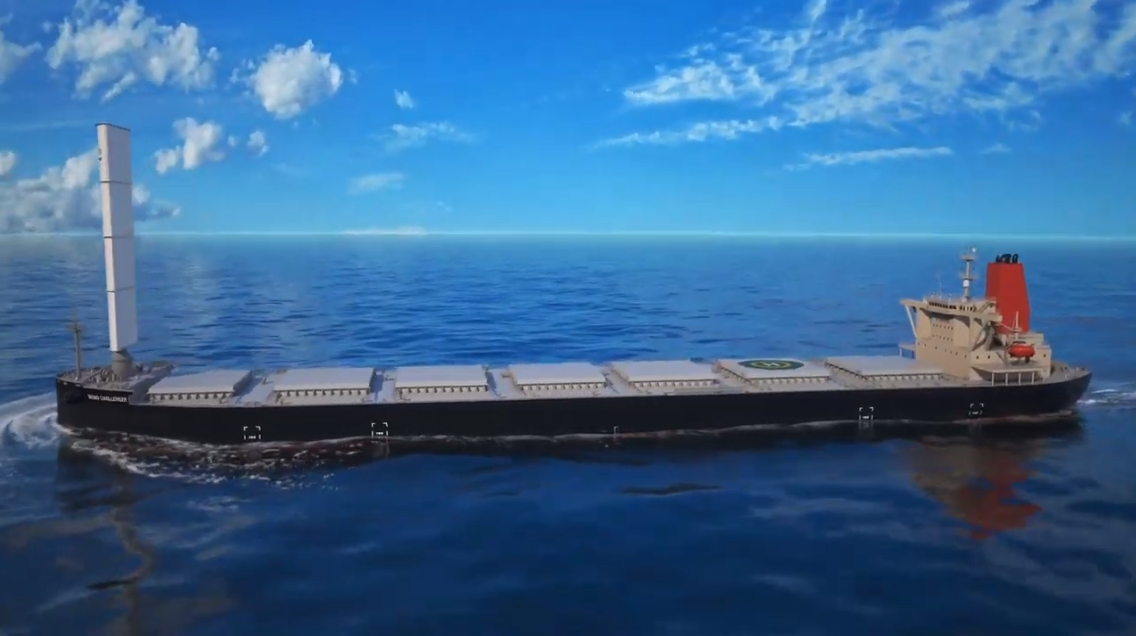Enviva, a global energy company specializing in sustainable wood bioenergy, and Mitsui O.S.K. Lines (MOL), a leading global marine transport group, today announced they have signed a memorandum of understanding agreement to develop and deploy an environmentally friendly bulk carrier.

The goal of the agreement is to reduce the greenhouse gas ("GHG") emissions in the ocean transportation of sustainable wood pellets. In the initial stage, the partnership will explore the environmental benefits, commercial and operational feasibilities of various technologies. This will include the "Wind Challenger", a cargo ship design with a hard sail, which would reduce emissions by harnessing wind energy. MOL have been jointly studying the technology with cross-industrial partners.
"Enviva is extremely excited to partner with MOL on this innovative project to reduce greenhouse gas emissions in our supply chain," said Thomas Meth, Executive Vice President, Sales and Marketing of Enviva. "In our recently announced goal of achieving net-zero greenhouse gas emissions by 2030, we committed to proactively engage with our partners and other key stakeholders to adopt clean energy solutions in our supply chain and this is one of the first opportunities for us to explore carbon reductions in our Scope 3 emissions.
MOL has been a long-term shipping partner of Enviva, providing a consistently professional and reliable shipping service, and we look forward to our new level of partnership which will positively impact climate mitigation and reduce carbon emissions."
Toshiaki Tanaka, Managing Executive Officer and Chief Environment and Sustainability Officer of MOL said, "We are truly excited about this partnership, and it comes at a perfect timing as we start our new business entity, MOL Drybulk, this April. By integrating the various areas of Drybulk businesses amongst our group, MOL Drybulk will aim to improve our service and provide solutions to meet the various needs of our customers, including the reduction of emissions from our shipping service. This is not an easy challenge, especially when we aim to introduce new technologies such as the Wind Challenger, so it is extremely encouraging to have Enviva as our partner, whose core mission is to fight climate change, and with their passion and determination, have proved that they can make a difference."
Plans to develop the Wind Challenger started in 2009 as an industry-academia joint research project led by the University of Tokyo. MOL took charge of the plan in 2018 and has been working on the technology since. The first Wind Challenger is scheduled to be released in 2022. The system converts wind energy to propulsive force with a telescopic hard sail. The long-term goal is to develop a widely accepted shipping solution to achieve the International Maritime Organization target in combination with other measures to reduce GHG by equipping vessels with multiple sails.